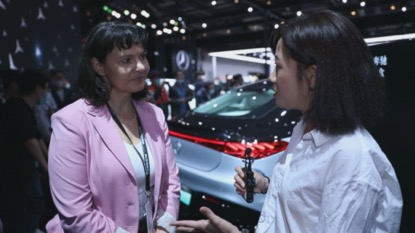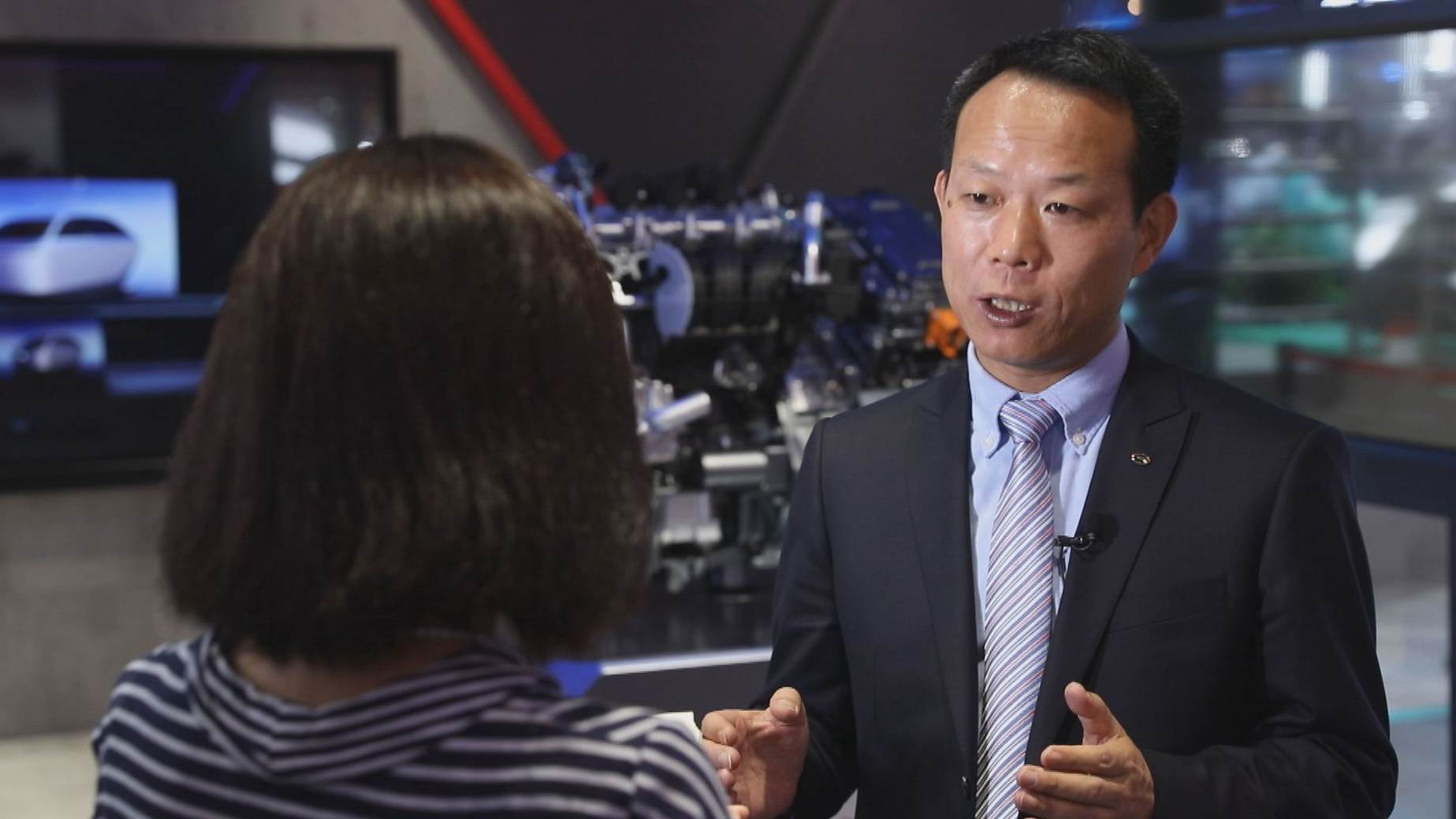02:36

New electric vehicles (NEVs) are all the rage at the 2021 Shanghai Auto Show, but industry players also threw caution to the rapid development of this space and note that consolidation could be in the works.
Beatrix Frisch, managing director and automotive lead of Accenture Interactive – Greater China, said that there are just too many players around and "the system cannot sustain this."
"Dealers are anxious they are losing business because an electric vehicle has 10 to 20 percent less of demand for repair and maintenance... But who of the NEVs will survive?" Frisch told CGTN on the sidelines of the auto show.
"I think in China the number [of the NEV companies] is somewhere between 480 and 500, they come and go. It always depends on: Do they raise sufficient money? Will they get the car on the road, will they get the technical approval homologation? Can they then survive in the market? There are so many choices for the customer."
Frisch said NEVs that are specialized or purpose-driven might be able to sustain. "But again you need critical mass at any point in time to generate profit. So, yes, there will be consolidation going on."
Frisch also posed the question: What's the way forward? "For electric cars, is it a plug-in hybrid, is it a car with pure hydrogen proprietary system, etc. There are a lot of varieties out there, where does it go?"
She said what this space needs are "standards" to make it easier for the customers and the market participants to sell and service the cars.
"I'm talking about a circular system, circular sustainability. Because it's not only that you drive an electric car, and that you think you are so green, where does the electricity come from? How is it produced? And how is the car produced? How are the parts produced? Where does it go? What's the recycling of the battery? The rare materials?"
And as Frisch puts it, the traditional original equipment manufacturers (OEMs) are "not sleeping." "We just looked at the hyperscreen of Mercedes, Volkswagen launched the third pure electric car, Audi is doing it, BMW has it. The traditional Chinese manufacturers – they are not sleeping."

Li Yong, vice president of GAC Motor, said the entry of NEVs is good for the entire automobile market, but he also pointed out there are many things that need to be ironed out still within the space. /CGTN
Li Yong, vice president of GAC Motor, said the entry of NEVs is good for the entire automobile market, but he also pointed out there are many things that need to be ironed out still within the space. /CGTN
What will the rise of NEVs mean for conventional carmakers?
One such Chinese conventional carmaker agrees that there are still many things within the NEV space that need to be ironed out.
"From the energy consumption cycle of the NEVs, their impact to the environment, and battery charging issues... all these will take a while to solve," Li Yong, vice president of GAC Motor Co. Ltd. told CGTN on the sidelines of the show.
Li also believes that amid the hype of NEVs, gasoline vehicles will still have a place in the market in the future. He is of the view that the entry of NEVs is good for the entire automobile market.
"China's car ownership per a thousand people – at less than 200 – is not high compared to that of developed markets where the figure is over 400. As the Chinese economy further improves, on the back of further recovery from the pandemic, the entire pie of the automobile market will only be bigger," Li said.
"So although the proportion of EVs is increasing, those of traditional gasoline-powered fuel is also rising because of the growth of the whole pie. On our end, our goals in the next five years are to focus on intelligent networking and to promote development of hybrid traditional fuel vehicles."
Li said GAC Motor is projecting a 20 to 25 percent year-on-year growth in sales volume for 2021 on the back of demand for its new products and technologies.
According to the China Association of Automobile Manufacturers (CAAM), sales of passenger vehicles rose 75.1 percent year-on-year to 5.08 million units in the first three months of 2021.
The CAAM said the negative impact of chip shortage on China's automobile production in the second quarter will exceed that in the first quarter.
To this end, Li expects the chip supply situation to be alleviated in the second half of the year, noting that many chip companies are already expanding their production capacity accordingly.

